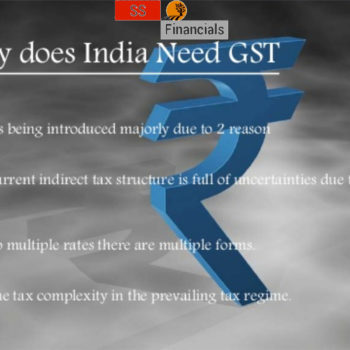
Increased compliance in GST returns is good for the economy
- Posted by SSdigitalBE
- On January 24, 2019
- 0 Comments
The compliance related to GST return filing can be defined in two ways. First, the “return filed for the due date” and the second “return filing to the income months”. Official statistics of “returns filed on the due date” indicate that compliance is better in the first few months. It also increased in recent months. Compliance percentage was the best in November. In December, 73.6 per cent of the eligible taxpayers filed returns. The compliance here is defined as GSTR-3B return, which is shown as a percentage of qualified GST taxpayers. Not only this, it can also be filed till March 2019.
The data presented in the Parliament by the Finance Ministry shows that 71.25 per cent of companies registered under the goods and services tax (GST) filed monthly returns in November, 2018, whereas in July, 2018, it was 80 per cent. In January, 2018, returns were 87.4 per cent. It was 92.6 per cent in August, 2017. These figures show that compliance related to GST return filing has decreased, but after analyzing the case, it was found that the immediate monthly compliance has been improving.
Significantly, compilation of composition dealers has not been included in this analysis. With the option of filing returns with indefinite delay, businessmen are filing returns in the subsequent months due to availability of this option. By complying with this and including composition dealings in the analysis, the percentage of compliance can improve further.
However, it is not clear now that small taxpayers have started filing excess returns or big taxpayers. The increase in the number of returns has not improved the tax collection, which is an indication that from the increased returns, the returns of zero tax or lower value are more.
The GST Council has recently announced to increase the registration limit and exemption in the composition plan, thereby hoping for huge relief to small businessmen. They can avoid compliance with filing returns. According to government estimates, by increasing the registration limit, at least two Crore taxpayers can benefit and they can be out of the realm of GST.
Increasing the registration limit by the government to Rs 40 lakh and increasing the composition plan from Rs.1 cr. to 1.5 cr. can reduce the percentage of compliance, because many businesspeople will no longer be required to register. The traders doing one and a half million rupees per year can now take advantage of the composition scheme. Under this, they will be given 6 per cent GST and they will also get relief in filing returns for compliance. They will be able to fill the annual returns. In such a positive environment, businessmen should take advantage of the concession given by the government, but they also have the responsibility to avoid tax evasion or wrongful action.
It is difficult to ensure the compliance of the rules for traders with limited resources, but it is not so difficult to comply that they cannot be complied with.
Small businesses will now have to make accurate calculations of turnover, so that it can be ascertained what is their position in the case of registration and composition limits. To minimize the loss of tax revenues after the current reforms, the government will have to pay special attention to measures to prevent tax evasion, because only a few businessmen will be in the purview due to increase in the limit. However, owing to low taxpayers, tax officials will be able to keep a close watch on large taxpayers and will help them to rein in bigger theft. It is believed that when people are easy to comply with the law then there will be a reduction in cases of tax evasion.
It is worth mentioning that businessmen doing annual business of less than Rs 40 lakh can come out of GST registration only when they do not supply products to big or corporate consumers, because big consumers insist on registering. They do not want to buy goods from non-registered businessman. In this connection, Rs 20 lakh limit is applicable in the Northeast states. Yes, the new arrangement is always a beneficial situation for small businessmen, because they can do business without holding a statutory record.
In this light, some big businessmen are unhappy with the relief given to small businessmen, because according to them, the new tax system will promote wrong practice. Increasing the exemption limits will reduce GST’s purview, there will be a significant reduction in tax revenue collection. Therefore, in case the rebate is the most negative form of exemption. Therefore, the government should ensure that the taxpayers do not try to divide their business or get discounts in any other way; otherwise the purpose of implementing GST will be fruitless. The GST Council should be instructed to keep all the states in the same level, to ensure uniformity in tax structure.


